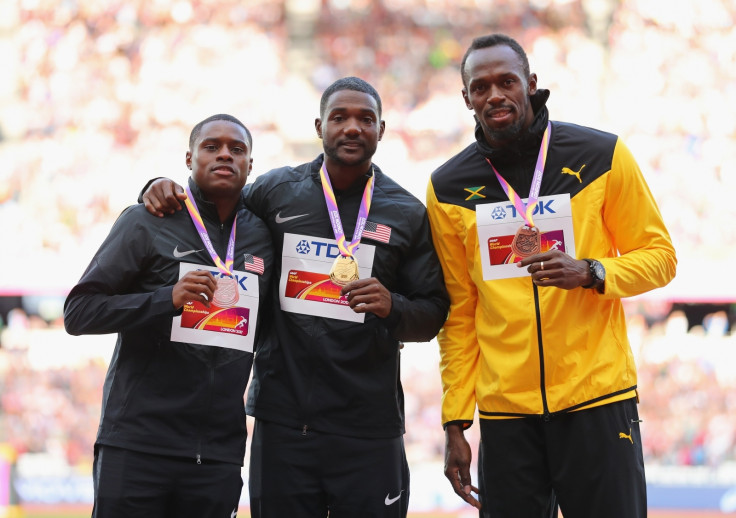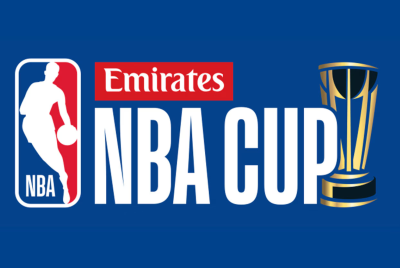Modern morality tales of Bolt, Farah and Gatlin show the glory and the grime of athletics and Britain
Justin Gatlin was booed after dethroning Usain Bolt in the 100m final in London last weekend.
What does it mean to be the best in the world? London's Olympic Stadium (to use its proper name) has seen some mighty feats achieved in its relatively short history.
Back when it was christened in 2012, Usain Bolt was already the acknowledged superpower in men's sprinting and he went on to confirm his greatness with the second installment of his Olympic "triple triple" (gold in the 100m, 200m and 4x100m at Beijing, London and Rio de Janeiro).
Britain's Mo Farah arrived at his home Olympics as a serious contender to be the best long-distance runner in the world and by the end of the championships he had proved that he was (10,000m and 5000m gold double).
Britain had approached the London 2012 Olympics with a certain trepidation. How could we produce an opening ceremony to match the awe-inspiring rigour and scale of Beijing? How did we measure up athlete-wise on the grandest sporting stage of them all? Would it rain for three weeks?
By quirks of British inventiveness (Danny Boyle's pseudo-historical romp from Isambard Kingdom Brunel to James Bond); huge Lottery investment in sport; and good fortune (barely a drop of rain), it all came together and Britain felt as good about itself as it had for many decades. Gold post boxes were erected across the nation to mark the moment as Britain enjoyed an extraordinary medal rush bringing 65 podium appearances, 29 of them accompanied by the national anthem.
But perhaps we have let that success go to our heads and begun to believe our own hype. Britain in 2017 feels an awful lot different to the country just five short years ago.
The second biggest athletics event on the planet has come to the stadium and for a moment it is possible to imagine that little has changed. The stadium looks much the same as it ever did (with just a few smatterings of colour and occasional artefacts showing that it is now the home of West Ham United Football Club). The crowds are huge and noisy. And Farah is still the best 10,000m runner in the world. And on Saturday night he will have the opportunity to claim the long-distance double he claimed at both the London and Rio Olympics and the World Championships of Moscow 2013 and Beijing 2015.
But Bolt's much-vaunted farewell proved to be a 100m too far. The unbeatable sprinter through three Olympics and four World Championships came unstuck at the final hurdle and the London crowd's reaction was extraordinary to say the least. They may have been upset by Bolt's dethronement, but it was the man who unseated the king who paid the price.
The massed booing at Justin Gatlin didn't just come after he claimed 100m gold, but had been going on throughout the stages of the tournament. It reached a noticeable and very loud peak after the final despite his paying homage to the legend that was Bolt, with a rather touching act of fealty as he dropped to his knees before the Jamaican sprinter.
Gatlin's crime was to have become a man labelled, particularly by the British media, as a "two-time drugs cheat". And, on the surface, this is what he is, but how many of those booing could actually tell you what his crimes had been? Or, indeed, when they had been committed.
For a brief fact check, Gatlin's two infractions had come more than a decade ago. The New Yorker had been taking Adderall since childhood – a drug which contains amphetamine and is used to combat attention deficit disorder – and in 2001 was found to still have some of it in his body when competing. He was banned for two years, later reduced to one, while the United States Anti-Doping Agency (Usada) declared that "Mr Gatlin neither cheated nor intended to cheat".
In 2006, he received an eight-year ban (reduced to four) when he failed a test for the banned steroid testosterone. Gatlin maintained his innocence, claiming the failed test was due to testosterone cream rubbed into his legs by his masseuse, a disgruntled, soon-to-be ex-employee. Gatlin failed to prove his case, but we should note that this is a strange kind of justice: He had to prove beyond all reasonable doubt that he was innocent rather than the other way around.
So, yes, Gatlin has been convicted of two drug offences, but one was questionable, and he maintains his innocence over the other. And, anyway, do we not believe that people should be offered the opportunity to redeem themselves after they have served their time? Gatlin was punished, lost what should have been the best years of his career and deserved to be treated better than a pantomime villain.
The booing of him – the loudest I have ever experienced in a sporting arena – was ungenerous to say the least. Rude, petty, vindictive and ill-informed are other words that come to mind. This is the morality of the Daily Mail: a world in black and white, where nuance and understanding are pushed aside to fit an ethical picture that those who consider themselves morally superior wish to paint.
The crowd may have been disappointed that Bolt was denied one last individual sprint gold, but sport stories do not always have fairytale endings. Perhaps Bolt was the athlete who didn't know when was the right moment to go out on top.
Let us remember too that Gatlin was the best in the world before Bolt's decade of dominance, winning the 2004 Athens Olympics 100m gold. Gatlin was thus at the top of the podium before Bolt and he was there at the end, and unless – some critics might say until – evidence is provided to the contrary he did it without doping.
Bolt has one last chance for gold with the 4x100m relay. Farah too has another opportunity with the 5000m final on Saturday (12 August) before he heads to the road and a future as a marathon runner.
But there will be no Super Saturday this time around. Long jumper Greg Rutherford announced he would miss the championship in July due to an ankle injury and Katarina Johnson-Thompson could not replicate the achievements of Jessica Ennis-Hill. Indeed, the level of disappointment at the lack of medals this time smacks of entitlement. Being the best in the world at anything is incredibly difficult. Being among the best dozen in the world is an achievement in itself. After Farah's retirement from stadium athletics it is hard to see where Britain's next world-beater will come from. Indeed, it is increasingly difficult to see a story such as Mo's happening again.
Farah was born in war-torn Mogadishu and only moved from Somalia to Britain when he was eight years old. In a world where Britain has voted for Brexit in a bid to close its borders and so many people were questioning the nationality of tennis player Johanna Konta, will we see another immigrant so taken to the nation's heart? Perhaps, we are so in thrall of winning that everything else will be forgotten in return for success.
Farah's global domination began and will end in London. And the end of these championships will perhaps mark the end of a chapter of British history, when our national pride was restored to the point that we perhaps began to believe our own publicity about being the best in the world. Britain of 2012 was open and relevant. After 2017, will we once again become an also-ran, in sport as well as politics, with only our supposed moral superiority to keep us company?

© Copyright IBTimes 2025. All rights reserved.





















